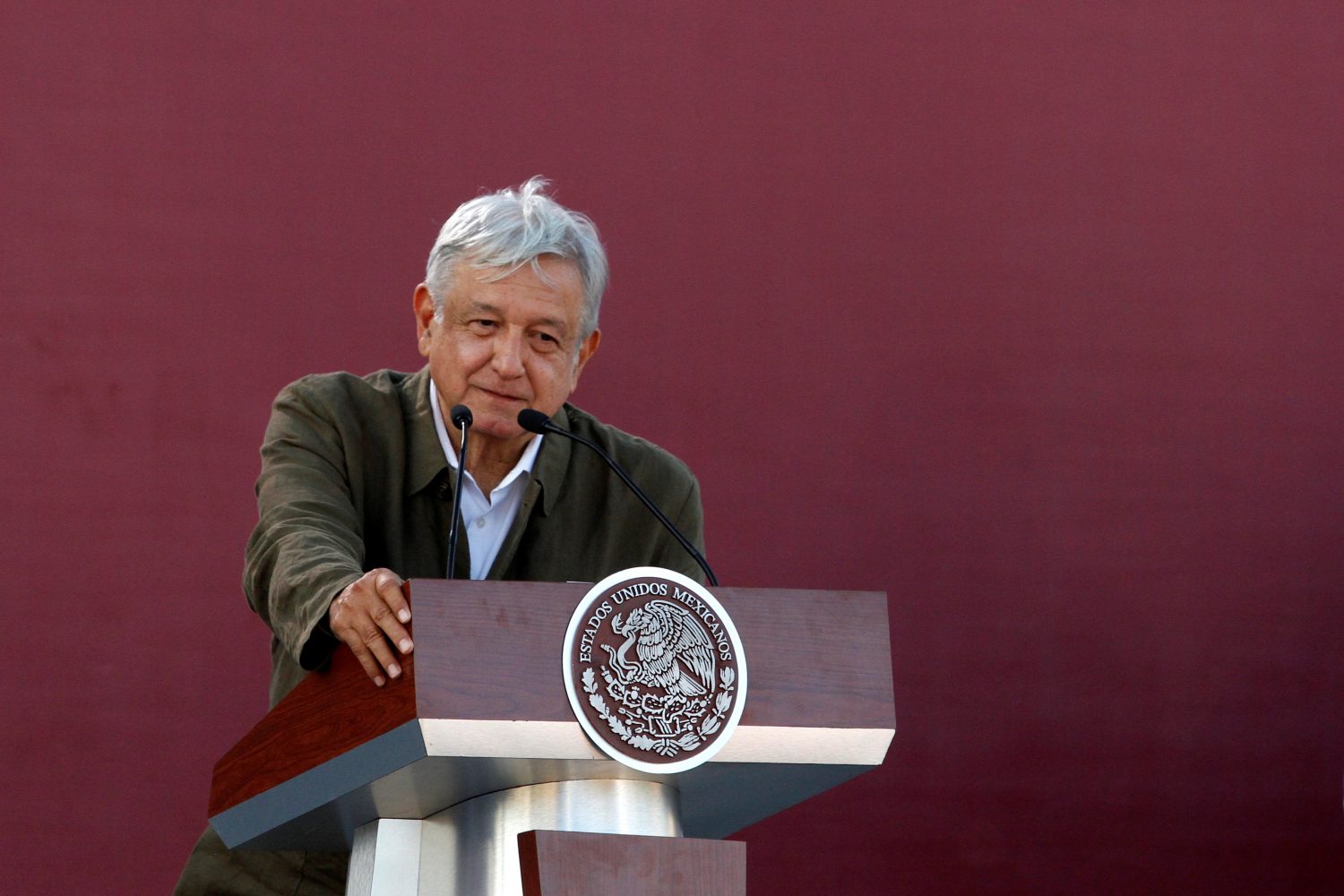
MEXICO CITY (Reuters) – Mexican President Andres Manuel Lopez Obrador said on Thursday he expected violence in Mexico to fall after the U.S. sentencing of drug lord Joaquin “El Chapo” Guzman, vowing to create a society less obsessed with making money at any cost.
Guzman will spend the rest of his days behind bars in the United States after a judge sentenced him on Wednesday to life in prison plus 30 years. A jury found him guilty in February after an 11-week trial.
When asked during his regular morning conference whether he expected violence to rise over the coming weeks following the sentencing, Lopez Obrador said: “No, on the contrary. We think that bit by bit the number of criminal incidents will decline.
“We will continue to create a better society, supported by values, that is not based on accumulating material wealth, money or luxury,” Lopez Obrador said.
Earlier in the conference, a member of his government showcased luxury jewelry and watches confiscated from convicted criminals that would be auctioned, with proceeds going to impoverished Mexican villages.
Guzman was extradited to the United States in 2018 following two breakouts from Mexican jails: one purportedly in a laundry cart, the other through a mile-long tunnel.
In an opinion poll conducted by Mexico’s Reforma newspaper, with support from the Washington Post, 52% of people surveyed said Lopez Obrador’s efforts to tackle crime were lacking while 55% said he was failing to bring down violence.
Forbes magazine once listed Guzman as one of the world’s richest men.
Lopez Obrador said Mexico would explore whether there would be legal ways for Mexico to claim Guzman’s assets, adding that Foreign Minister Marcelo Ebrard would be in charge of the matter.
“These resources, these assets legally belong to Mexico and the matter will be considered on a legal basis,” Lopez Obrador said. “I believe that the United States will agree.”
(Reporting by Stefanie Eschenbacher and Miguel Angel Gutierrez; Editing by Chizu Nomiyama and Jonathan Oatis)



